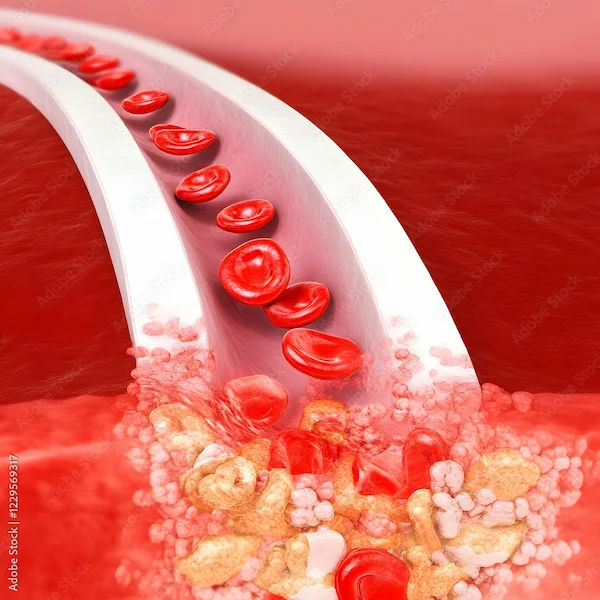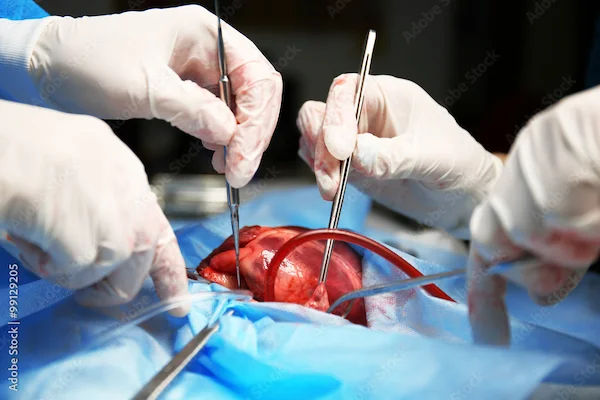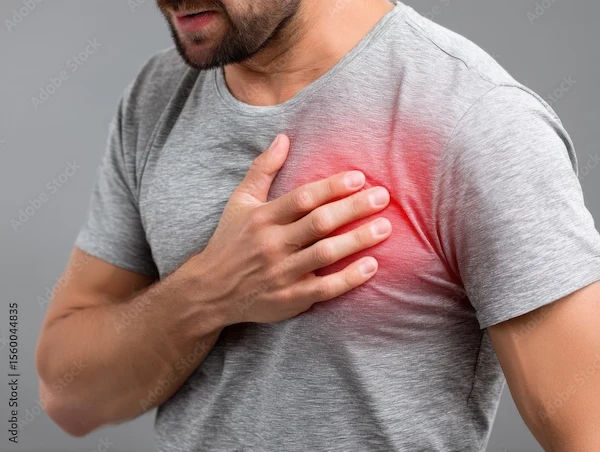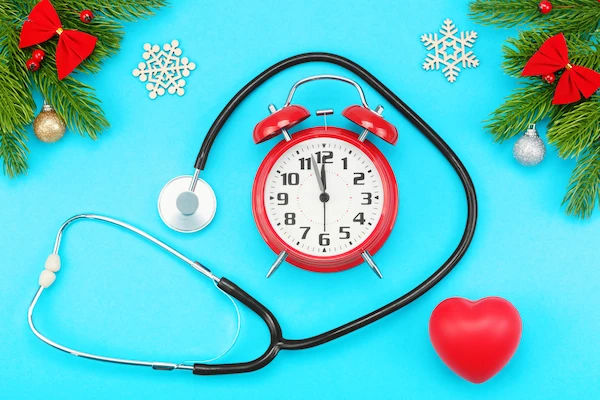Ejection Fraction After Bypass Surgery
Discover what ejection fraction means after bypass surgery, how it's measured, and what the numbers indicate for your heart health and recovery.

Written by
Last updated on 10th Jul, 2025

Introduction
If you or a loved one has recently undergone bypass surgery, you may have heard the term "ejection fraction" (EF) during follow-up visits. This measurement is crucial in assessing how well your heart is functioning after the procedure. In this article, we’ll explain what ejection fraction means, how bypass surgery affects it, and what you can do to improve your heart health.
What Is Ejection Fraction?
Ejection fraction is a percentage that measures how much blood your heart pumps out with each beat. A healthy heart typically has an EF between 50% and 70%, meaning it pumps out more than half of the blood in its chambers with each contraction.
Normal EF: 50-70%
Mildly reduced EF: 41-49%
Moderately reduced EF: 30-40%
Severely reduced EF: Below 30%
A low ejection fraction indicates that your heart isn’t pumping efficiently, which may lead to symptoms like fatigue, shortness of breath, or swelling in the legs.
How Does Bypass Surgery Affect Ejection Fraction?
Bypass surgery (CABG – Coronary Artery Bypass Grafting) is performed to improve blood flow to the heart by bypassing blocked arteries. The goal is to:
Restore blood supply to heart muscles.
Reduce chest pain (angina).
Improve heart function over time.
After surgery, your ejection fraction may:
Improve gradually as blood flow to the heart muscle gets better.
Stay the same if the heart muscle was already significantly damaged before surgery.
Take time to recover—sometimes weeks or months, depending on overall heart health.
What Symptoms Should You Watch For?
If your ejection fraction remains low after bypass surgery, you may experience:
Shortness of breath (even with mild activity).
Fatigue or weakness.
Swelling in legs, ankles, or feet (edema).
Irregular heartbeat (palpitations).
Dizziness or light headedness.
If you notice these symptoms, consult your doctor for further evaluation.
Consult Top Cardiologist
How Can You Improve Your Ejection Fraction?
While some heart damage may be irreversible, lifestyle changes and medications can help improve heart function:
1. Follow a HeartHealthy Diet
Eat more fruits, vegetables, whole grains, and lean proteins.
Reduce salt, sugar, and unhealthy fats.
Limit processed foods and alcohol.
2. Exercise Regularly (As Advised by Your Doctor)
Start with light walking and gradually increase activity.
Avoid heavy lifting or strenuous exercises without medical clearance.
3. Take Prescribed Medications
Common medications after bypass surgery include:
Beta blockers (to reduce heart workload).
ACE inhibitors/ARBs (to improve heart function).
Diuretics (to reduce fluid buildup).
4. Quit Smoking & Limit Alcohol
Smoking damages blood vessels and worsens heart function. Quitting can significantly improve recovery.
5. Manage Stress & Get Enough Sleep
Chronic stress can strain the heart. Try relaxation techniques like deep breathing, meditation, or yoga.
When Should You See a Doctor?
If you experience:
Worsening shortness of breath.
Chest pain or discomfort.
Sudden weight gain (fluid retention).
Fainting or severe fatigue.
Seek medical help immediately. Your doctor may recommend tests like an echocardiogram or stress test to check your heart function.
Can Ejection Fraction Improve Over Time?
Yes! With proper care, many patients see gradual improvement in EF after bypass surgery. However, recovery depends on:
The extent of heart damage before surgery.
How well you follow post surgery care.
Lifestyle changes and medication adherence.
Need Expert Advice?
If you have concerns about your ejection fraction or heart health after bypass surgery, Apollo 24|7 offers expert cardiology consultations. You can book a checkup or diagnostic test easily from home.
Take Charge of Your Heart Health Today!
Your heart is a resilient muscle—with the right care, it can regain strength. Follow your doctor’s advice, stay active, eat well, and monitor your symptoms. Small steps today can lead to a healthier heart tomorrow.
Consult Top Cardiologist
Consult Top Cardiologist

Dr. Anand Ravi
General Physician
2 Years • MBBS
Bengaluru
PRESTIGE SHANTHINIKETAN - SOCIETY CLINIC, Bengaluru

Dr. Tripti Deb
Cardiologist
40 Years • MBBS, MD, DM, FACC, FESC
Hyderabad
Apollo Hospitals Jubilee Hills, Hyderabad
Dr Moytree Baruah
Cardiologist
10 Years • MBBS, PGDCC
Guwahati
Apollo Clinic Guwahati, Assam, Guwahati

Dr. Zulkarnain
General Physician
2 Years • MBBS, PGDM, FFM
Bengaluru
PRESTIGE SHANTHINIKETAN - SOCIETY CLINIC, Bengaluru
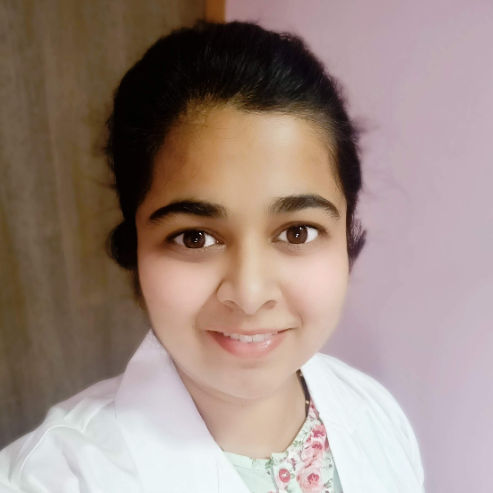
Dr Nazneen Khan
Cardiologist
7 Years • M.B.B.S, M.D (MEDICINE), DrNB CARDIOLOGY
Pune
Apollo Clinic, Viman Nagar, Pune
Consult Top Cardiologist

Dr. Anand Ravi
General Physician
2 Years • MBBS
Bengaluru
PRESTIGE SHANTHINIKETAN - SOCIETY CLINIC, Bengaluru

Dr. Tripti Deb
Cardiologist
40 Years • MBBS, MD, DM, FACC, FESC
Hyderabad
Apollo Hospitals Jubilee Hills, Hyderabad
Dr Moytree Baruah
Cardiologist
10 Years • MBBS, PGDCC
Guwahati
Apollo Clinic Guwahati, Assam, Guwahati

Dr. Zulkarnain
General Physician
2 Years • MBBS, PGDM, FFM
Bengaluru
PRESTIGE SHANTHINIKETAN - SOCIETY CLINIC, Bengaluru

Dr Nazneen Khan
Cardiologist
7 Years • M.B.B.S, M.D (MEDICINE), DrNB CARDIOLOGY
Pune
Apollo Clinic, Viman Nagar, Pune
